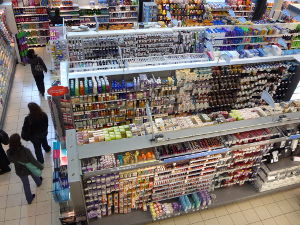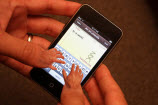We now know that coffee doesn’t really help you stay alert, and that the only magic to be found in so-called Magic Power Coffee is a sudden disappearing act. So, is there any good news about the bean? Turns out there is, at least according to a new metastudy, which finds that coffee might help lower the risk of head and neck cancer.
studies
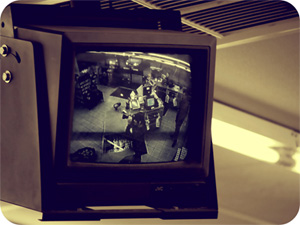
Credit Cards Limits Reduced Based On What You Bought, Where You Bought It
New insight into how the credit card companies have been secretly judging us all has emerged in a new Federal Reserve report. From Nov ’06-Nov ’09, some credit card companies admit to using more than just the usual income, credit and repayment history to evaluate if they should reduce your line of credit or raise rates. Yep, they’re looking at where you shop. [More]
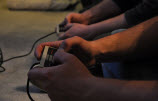
Researchers: Violent Games Make Some Teens More Hostile
If your teenager is quick to anger and depression, disagreeable and likes to break rules, video games may not just be letting him blow off steam, but may actually accentuate his dark tendencies, a study by professors from Villanova and Rutgers concluded. [More]

Poor People Spend 9% Of Income On Lottery Tickets
A recent study found that poor folks – households earning under $13,000 per year – spend about 9% of all their income on lottery tickets. [More]
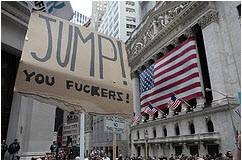
Your Household's Share Of The September 2008 Economic Collapse: $104,350
A recent report from the Pew Charitable Trusts tallies up each US household’s share in the economic collapse. Your household’s share? $104,350. That includes lost income, government bailouts, and both reduced home values and reduced stock values. [More]

War Declared On Salt!
Are you tired of the high fructose corn syrup battles? Today the Institute of Medicine, part of the National Academy of Sciences, released a report that said Americans on average eat enough salt every second to kill a humpback whale kraken. I have not actually read the report, but it probably said something like that. It also said that public education campaigns have failed to reduce sodium intake, and voluntary self-regulation by the food industry hasn’t been effective. [More]

The Touch Of Money Takes Pain Away?
A University of Minnesota professor is arguing that the touch and thought of cash helps solve your woes. Money may not be able to buy happiness, but it helps take the pain away, he says he’s found. [More]
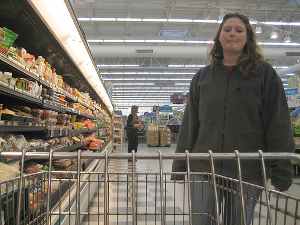
Study Finds Grocery Store Shoppers Are Honest Folk
The people on that People of Walmart website may wear some ugly t-shirts, but at least they’re honest when it comes to dealing with strangers. According to a new study that looked at how markets, religion, and the size of a community impact concepts of fairness and punishment, Walmart grocery shoppers in Missouri came out on top in terms of treating the other side fairly and punishing selfishness. [More]

Group Critical Of Baby Einstein DVDs Gets Evicted, Blames Disney
The Campaign for a Commercial-Free Childhood (CCFC) was the group responsible for pressuring Disney into offering refunds on Baby Einstein DVDs last October. Now the CCFC says Disney threatened the mental health center where the group had offices, and consequently the center booted them out in January. [More]
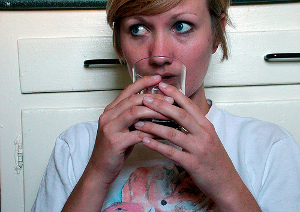
Premium Organic Wines Are A Good Deal Right Now
If you want a good deal on a high-end bottle of wine, a new study suggests you should look for wines that clearly indicate they’re made from organic grapes. An economics professor and an environmental science Ph.D. candidate compared wines made with certified organically grown grapes to conventional wines, looking at both price and taste rankings, and found that the organic ones scored on average one point higher on Wine Spectator’s rankings. For some reason, telling that to consumers seems to devalue the wine: high-scoring bottles that advertised their organic nature sold for less at retail, while bottles that withheld this info scored just as high on taste but also were priced higher than average. [More]
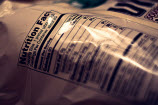
Study Finds Consumers Want Their Food Labeled As Inspected For Safety
A Michigan State University study found the majority of consumers look for labels that signify products they’re buying were inspected for safety, and that about a third are willing to pay more for such labeling. [More]
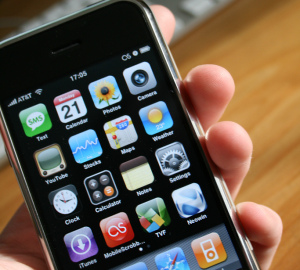
AT&T Network Blame Game Takes Weird "It's Apple's Fault" Twist
Last week AT&T, in yet another of a string of PR failures about the health of its network, made things even worse by publicly blaming its customers for, you know, being customers. Over the weekend, though, a new thread was introduced into the narrative: it’s the iPhone’s fault. Not because it’s too popular, which has been the old complaint, but because the hardware doesn’t work right, and AT&T can’t say anything about it for fear that Steve Jobs will reach down through the clouds and smite them.
That sounds pretty tragic and sad for AT&T, but the problem is nobody knows if it’s true, or if this is yet another strategy to shift the responsibility from AT&T.
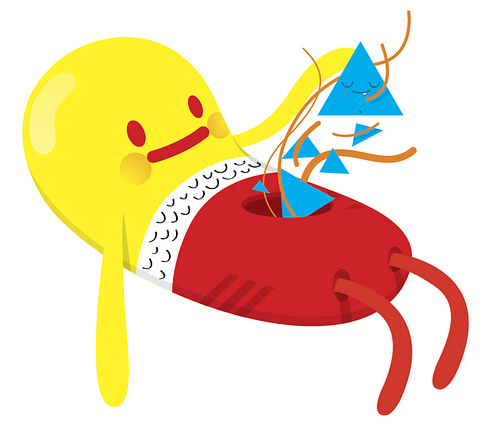
New Study Suggests Drug Ads Ineffective, But Expensive For Consumers
Researchers at the University of British Columbia in Vancouver looked at sales figures and prices for the blood thinner Plavix after direct-to-consumer advertising started in 2001. What they found was that the campaign was largely ineffective at increasing prescribing rates, but that the price of the drug shot up 12% almost immediately to cover the cost of the marketing campaign. [More]

What Cheer? Consumers More Glum Than Ever
Retailers have been hoping that we’d enter the annual Festival of Shopping with higher spirits than last year, but it looks like that might not happen after all. The Reuters/University of Michigan consumer sentiment index was updated today, and it shows a drop to 66.0, “well below October’s reading of 70.6 and a sharp reversal of the 71.0 figure economists had expected.”

First Results Of Gov Study Of Chinese Drywall Inconclusive, But More Tests To Come
Yesterday the Consumer Product Safety Commission (CPSC) announced some findings from its study of the problematic Chinese drywall, which 1,900 Florida homeowners have complained stinks and makes people sick. The commission told the Associated Press that “no connections have been made yet,” but that they’re doing more tests—which means there’s still no definitive answer on who should be held financially responsible if the homes have to be gutted and repaired, which the Wall Street Journal says could cost as much as $25 billion dollars.

Smart Choices Campaign Goes Bye-Bye
The not-so-convincing marketing campaign Smart Choices, which tried to frame Froot Loops as part of a healthy breakfast, has been snuffed out, Change.org reports.



